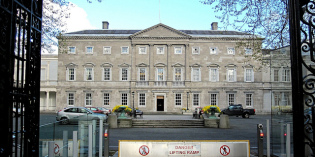Achieving accountable government

Between cohesion and division: reconciling the faultines of Europe’s past
Despite movement towards integration in the form of a shared currency and political institutions over the last 20 years, Europe shows signs of slipping back into populism and rancour. But do the faultlines of Europe’s past make full reconciliation impossible? Giacomo Lichtner, Mark Seymour, Maartja Abbenhuis explore this possibility, arguing that doing so is a necessity if […]

‘Harperism’: Undermining Canadian democracy since 2006
Progressives face a tough fight in next year’s Canadian election, currently scheduled for October. Claudia Chwalisz writes that even as the support for the Liberal Party and the New Democratic Party outstrips the Conservatives’, the Government of Prime Minister Stephen Harper’s (an ideological ally of David Cameron) changes to the electoral rules will likely suppress voter turnout and […]

Book Review: Models of Democracy in Nordic and Baltic Europe: political institutions and discourse, edited by Nicholas Aylott
Contributors in this volume aim to explore the possibility that some of the apparently successful institutional features of Nordic politics have somehow influenced politics in the Baltic states, despite the considerable contextual differences between the two groups. Of what is written in English on the Nordic Model there is little looking at its uptake in […]

Where do the main parties stand on Digital Government?
All of the main parties have, at least on paper, a commitment to increasing the role of digital technology in Government and in the running of our public services, with progress made since 2010 in expanding its use in these regards. Eddie Copeland looks at the prospects for after the May General Election, arguing that […]

The emergence of lucrative post-Prime Ministerial and Presidential business careers raises questions which go to the heart of democracy
Political leaders used to either retire or remain engaged in the political sphere after their executive careers are over. However, a number of factors, including the younger age at which political careers end, has led to the development of a new trend in which former leaders earn enormous amounts of money in the private sector. […]

Can a constitutional convention offer real and radical change?
Following an economic and financial crisis in 2009, Ireland became one of the first countries that attempted to provide for a citizen-led programme of constitutional reform. Senator Ivana Bacik speaks about her experience as a politician who took part in the Irish Constitutional Convention. She suggests that a constitutional convention can offer real and radical change. Similar PostsHow democratic is the UK’s basic constitutional […]

Long constitutions are not garrulous, but they are restrictive
Following the Scottish independence ‘No’ vote, many have suggested that the only way to clear up the heightening degree of incoherence that characterises the UK’s constitutional settlement is to start afresh with a constitutional convention, given its final expression through a new written Constitution. George Tsebelis and Dominic J. Nardi, Jr show that any such a constitution should […]

The best of Democratic Audit’s 2014 coverage of democracy’s technological advance
Is the future of democracy digital? In 2014, Democratic Audit UK carried numerous pieces of analysis, research, and argument concerning the interplay between technology, politics, parties, and representation, with the best appearing below in the latest of our 2014 round-ups. Similar PostsSocial media may have the potential to truly enhance our democracy, but there is […]




 Democratic Audit's core funding is provided by the Joseph Rowntree Charitable Trust. Additional funding is provided by the London School of Economics.
Democratic Audit's core funding is provided by the Joseph Rowntree Charitable Trust. Additional funding is provided by the London School of Economics.